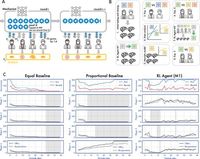A New Study Uses Deep Reinforcement Learning to Develop a Resource Allocation Mechanism That Promotes Sustainable Contributions in a Common Pool Resource Environment.
A research team from Google DeepMind and other institutions has unveiled an innovative system employing deep reinforcement learning (RL) to enhance resource management in multiplayer trust games, fostering sustainable contribution among participants.
In diverse economic scenarios, trust plays a pivotal role. Buyers trust suppliers, employers rely on employees, and social systems count on citizen responsibility to function optimally. Yet, common pool resource (CPR) dilemmas arise when individuals have to decide whether to selfishly withhold contributions from shared resources or act selflessly to sustain them. The potential collapse of such systems due to selfish behaviours prompts researchers to investigate mechanisms that encourage reciprocation in resource sharing.
Traditionally, game theorists have explored social dilemmas through controlled experiments, observing how human participants respond to resource allocation strategies. However, the challenges remain notable: without proper coordination mechanisms—such as contracts or communal agreements—individual contributions often fluctuate, potentially leading to resource depletion.
The recent study evidently reveals that deep RL can chart new paths to resource management. By creating an economy using simulated participants trained to mimic real human behaviours in trust games, the researchers discovered effective resource allocation methods that improve overall well-being while curbing inequality.
Utilizing deep neural networks, the RL mechanism learns to dynamically allocate resources based on historical patterns of reciprocation, maximizing total player surplus while also introducing temporary sanctions against non-contributive players. "Deep reinforcement learning can discover a resource allocation mechanism that successfully promotes sustainable behaviour among people," wrote the authors of the article. This nuanced approach appears to pave the way for higher efficiency in resource utilization over time.
In practical terms, the study implemented an infinitely repeated multiplayer trust game, inviting participants to allocate monetary resources drawn from a common pool. Each player had the option of reciprocating or retaining a portion of their received endowment, with the game’s rules designed to contextualize their choices.
One fascinating aspect of this mechanism is its responsiveness: the RL model tends to offer more egalitarian allocations when resources are abundant and temporarily exclude players when resources dwindle, reinforcing the idea that both equity and sustainability can coexist. The researchers noted that "the mechanism learns to condition its generosity on resource availability and applies temporary sanctions for defectors," showcasing its adaptability in response to changing contexts.
Through various experimental phases, the RL mechanism significantly outperformed conventional baseline methods, generating cumulative surpluses approximately 150% greater than those seen in the best traditional setups—while simultaneously maintaining a more balanced distribution of resources among players.
The implications of this research extend far beyond the gaming environment. Successful resource allocation mechanisms could inform public policies aimed at enhancing sustainability in shared resource systems—such as environmental management or public service financing—ensuring that societal needs are met while equity is prioritized.
As the world grapples with mounting environmental challenges and resource depletion, strategies that build trust and cooperation among stakeholders could offer essential insights. This study exemplifies how AI methodologies can illuminate paths toward effective resource management while fostering reciprocal behaviours essential for societal well-being.
In conclusion, this research highlights several key contributions to understanding resource dynamics: it elucidates how deep reinforcement learning can accurately model human behavioural complexities within multiplayer exchanges, demonstrating a promising framework for sustainably managing common pool resources. By learning from both simulated data and real human interactions, the study lays the groundwork for the integration of AI into economic policies, promising enhancements in both equity and efficiency.




